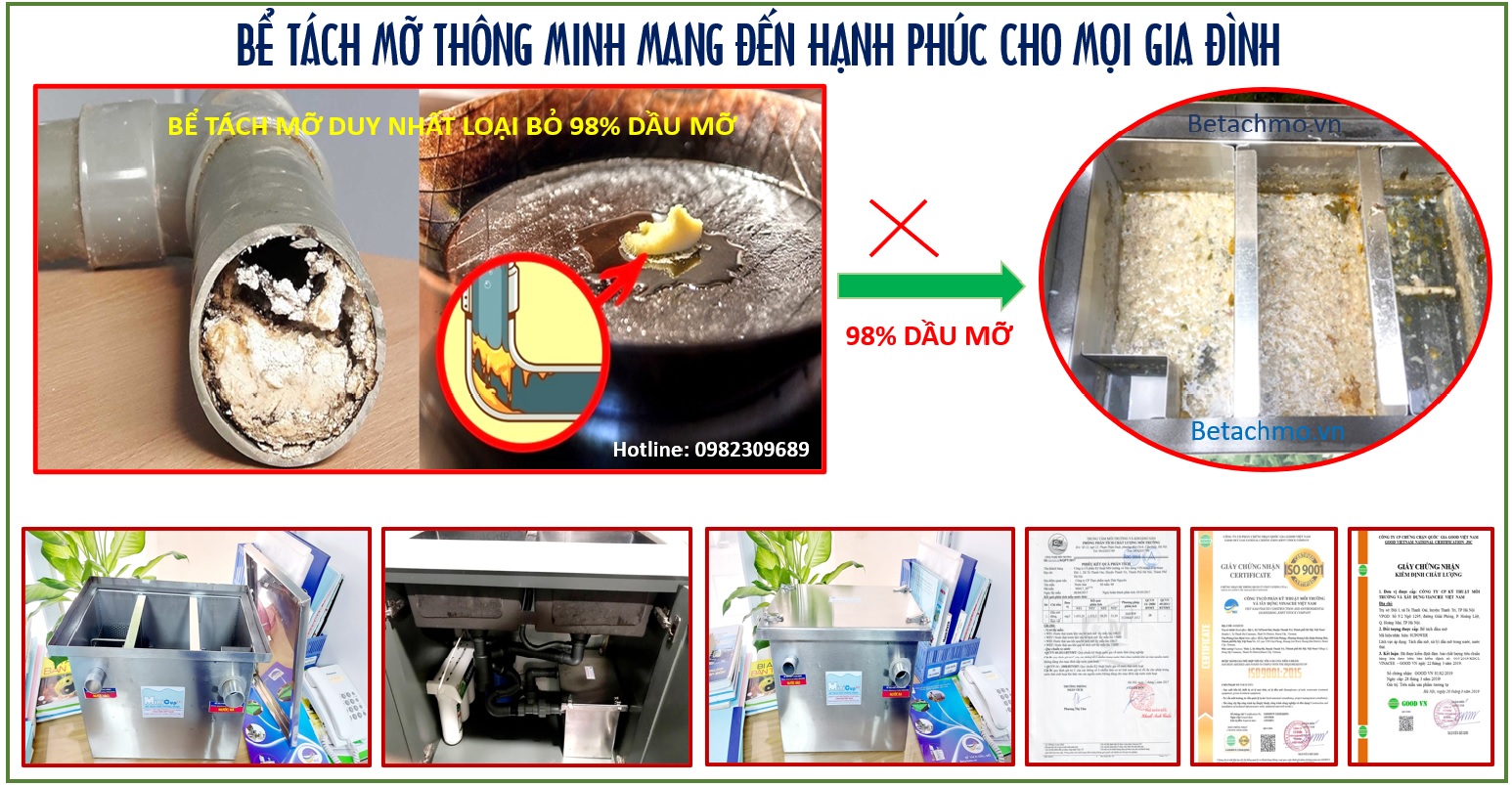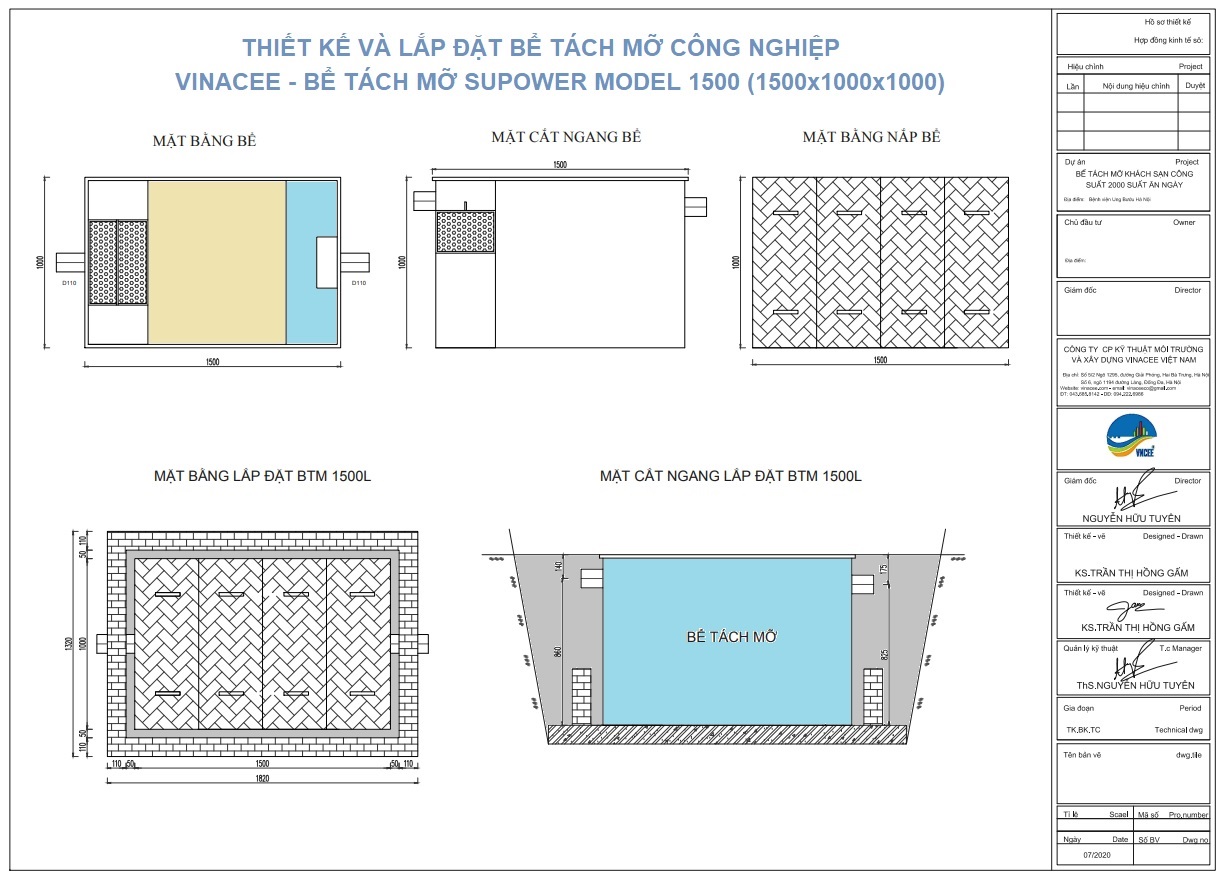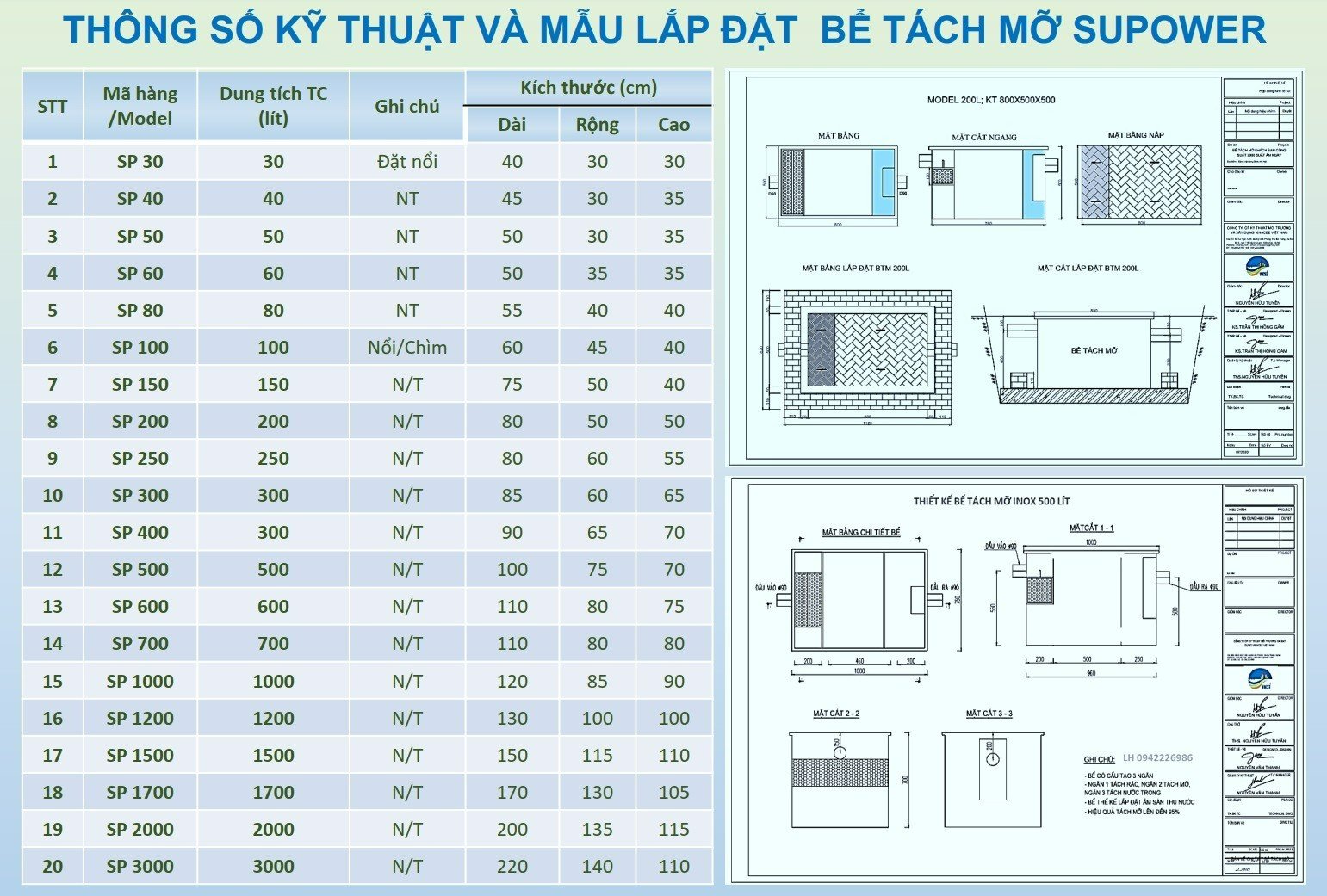Restaurant Kitchen Portable Oil Water Separator And Iron Grease Traps Interceptor
Oil and grease pollution prevention focuses on the elimination or reduction of waste before it is generated through changes in production, operation and raw material use.
Managing waste after it occurs may be costly and time consuming. Adopting pollution prevention is key to saving money, resources and to improving the quality of the environment. The Fort Worth water utility is committed to protecting the city’s wastewater system by encouraging and awarding those who take the extra step in preventing pollution. BỂ TÁCH MỠ MADE IN VIETNAM

Animal fats and vegetable oils, also known as grease for example, are some of the most common pollutants of the sewer system. Grease is the result of cooking and occurs naturally in many types of food. Grease enters the sanitary sewer as a result of food preparation and the washing of dishes, silverware, pots, pans and other equipment. Animal fats and vegetable oils go down the drain, where they cool and eventually solidify (fats and oils do not mix with water). Over time the sewer pipe’s diameter is significantly reduced by the accumulation of grease. Petroleum oils and byproducts from automotive repair facilities and car washes may also cause grease problems in the sewer system.

Residential, commercial and industrial facilities generate grease. Single-family homes, apartment complexes, restaurants, grocery stores, hospitals, airports, food processing plants, car washes and automotive service stations are just a few of the potential sources.
Grease Traps
Grease traps are designed to separate out the fats, oils, grease and solids from the wastewater discharged into the sanitary sewer system. Fort Worth requires restaurants, food processing facilities, automotive repair facilities, car washes, commercial laundries and all other facilities that the city deems necessary to install and maintain grease or grit traps. It is the responsibility of the generators to ensure that their grease/grit traps, and the wastewater discharged from them, are in compliance with all city requirements.

Restaurant Wastewater Discharge Permit Program
As a significant, potential source of grease within the city’s wastewater collection system, restaurants and other designated food service establishments are required to obtain a permit(PDF, 227KB) prior to discharging wastewater into the sanitary sewer.
LH: MR TUYÊN 0942226986/ZALO

